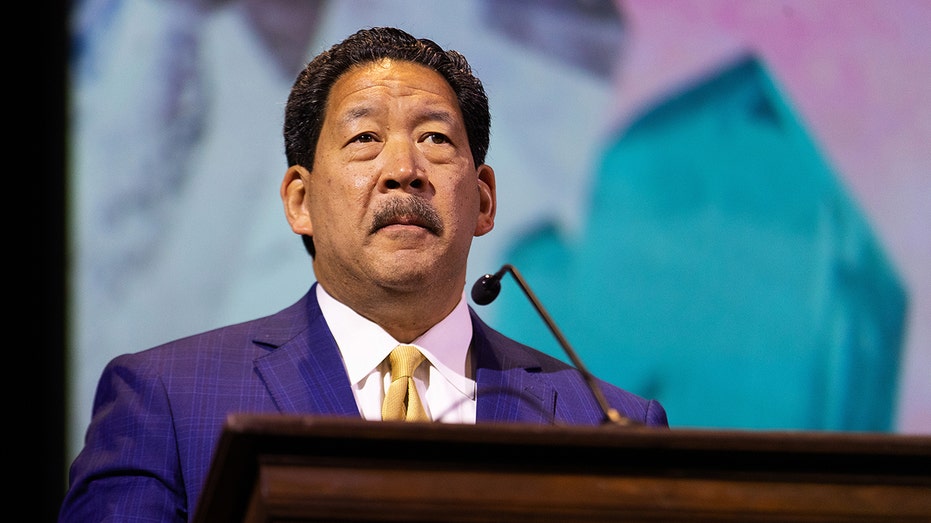- by foxnews
- 10 Mar 2025
The rise of AI: When will Congress regulate it?
While some behind the AI boom may be assuring Americans there's nothing to worry about, many are looking to their congressional representatives for answers - and intervention.

If that's the case, perhaps we should ask AI when Congress might pass a bill to regulate the emerging technology - before it spirals out of control.
There's a push by Congressional leaders to approve a bill regulating AI when lawmakers return to Washington after the election. But the path to passage - and developing a consensus on establishing guardrails for AI - is far from certain.
"It can't be days or weeks. But nor should it be years. It'll be in the general category of months," said Schumer.
"This is sort of an important, urgent and in some ways unprecedented moment and I think we really need the government to lead," said Altman at the time.
Congress has a mixed record of establishing standards and best practices for new technologies.
And that is precisely what Congress "hath wrought."
Congress did intervene in the 1920s and 1930s with this new thing called "radio." There was no restriction on power, wattage or footprint The signals of various broadcasters stepped all over one another. The broadcasters appealed to Congress to regulate them via legislation. That christened the formal beginning of federal telecommunications policy.
"We know that there is extraordinary potential and possibility with this. But also some peril," said House Speaker Mike Johnson, R-La.
Johnson and other conservatives are leery of big government quashing the potential of AI.
"We want to resist overregulating. The innovation aspect of AI is very important," said Johnson. "I believe in Reagan's principle that less government is the solution. Government is the problem itself. So we want to be very careful."
The EU also wants a conformity among AI systems which enter the marketplace. This would, in effect, create a "level playing field" for AI users.
Rep. Don Beyer, D-Va., is studying for a master's degree in AI at George Mason University. He suggests it isn't just free-market conservatives like Johnson who want to limit the government footprint on AI.
"None of us want to imitate the European Union's AI act, which we see as very regulatory. Very prescriptive. We want to have a light enough touch so that America is still the center place of innovation, imagination and creativity," said Beyer.
But Beyer offers a note of caution.
"Some regulation is probably going to be necessary because there will be bad actors," said Beyer.
As to the speed of passing legislation? Beyer says he's not concerned.
"It's much faster than what we've been able to react on for social media, for example. We've done very little. One of the things that's pending is a major privacy bill. We've never had a real Privacy Act in American history," said Beyer.
The House empaneled an AI task force last year. Rep. Jay Obernolte, R-Calif., is one of the co-chairs. He says people shouldn't fear AI.
"Unfortunately, AI is a topic that's been informed by 50 years of science fiction and pop culture. So, if you ask the average American what the biggest downside potential of AI is, they'll give you something out of a Terminator movie where an army of evil robots rises up to take over the world. That's not what we worry about," said Obernolte.
But what does concern Obernolte is the potential for AI to spread misinformation, pierce your data privacy and even make malicious financial transactions without your knowledge.
"These are all things that keep us up at night. That put together are probably equally consequential as an army of evil robots," conceded Obernolte.
But can Congress act before AI does?
A report is due from the AI task force later this year.
What might it say? What legislative solutions might lawmakers offer? Can Congress pass a bill? Will the outcome of the election impact these possibilities?
Unclear.
But perhaps ask AI.
- by foxnews
- descember 09, 2016
Ancient structure used for cult 'rituals' discovered by archaeologists
A Neolithic Timber Circle was discovered by archeologists in Denmark resembling the historical landmark Stonehenge in the U.K. It is open to be viewed by the public.
read more





